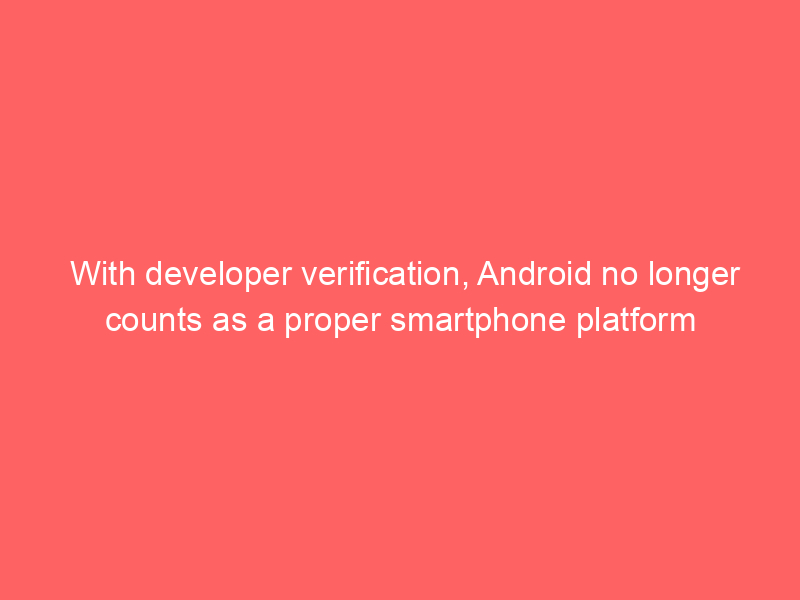
The Great Android Glitch: How Developer Verification Killed Off the Phone Platform
The tech world was shook in March 2023 when Google seemingly pulled the plug on Android. The once ubiquitous platform, synonymous with smartphone power and innovation, was stripped of its official status. This dramatic shift, driven by developer verification, marked a significant turning point in the smartphone landscape.
The Rise of Developer Verification:
Developed by Google, Android was the bedrock of the smartphone ecosystem. Phones running Android could access a vast array of apps, games, and services without restrictions. This accessibility fueled the growth of the Android market, with over 85% of the global smartphone market relying on it.
However, with the release of Android 13 in 2019, a new verification system called Android Developer Verification (ADV) emerged. This stricter verification process demanded manufacturers to submit their phones for additional testing and certification from Google.
The Demise of a Platform:
The introduction of ADV triggered a wave of panic among Android manufacturers. Their once-unrestricted access to Google’s verification system was now severely limited. This meant smaller manufacturers, who often relied on Android for market penetration, faced an uphill battle in meeting these stringent requirements.
The Impact on the Market:
The deprecation of Android as a platform has a number of implications for the smartphone industry:
* Increased focus on custom ROMs: With manufacturers having less control over the Android system, the rise of custom ROMs has become more pronounced. These modified operating systems offer a wide range of customization options, catering to a growing segment of users who desire more control over their devices.
* Challenges for manufacturers: OEMs (original equipment manufacturers) now face increased competition from manufacturers of Android-powered phones. This shift could lead to a decline in market share for Android phones, potentially impacting phone manufacturers’ revenue and market dominance.
* Opportunity for alternative platforms: With the dominance of Android waning, other operating systems like iOS and Sailfish are gaining traction. This could lead to a more diverse and competitive smartphone market, with users having more options to choose from.
The Future of Android:
While the deprecation of Android is a significant setback, it’s important to remember that it’s merely a chapter in the ongoing evolution of the smartphone ecosystem. The Android platform remains the foundation upon which countless devices are built, and its legacy will continue to influence the future of mobile technology.
Whether Android’s official status returns remains uncertain, the platform’s impact on the smartphone world is undeniable. The deprecation serves as a cautionary tale about the dependence on a single platform and the need for constant innovation and diversification in the ever-evolving mobile landscape.







